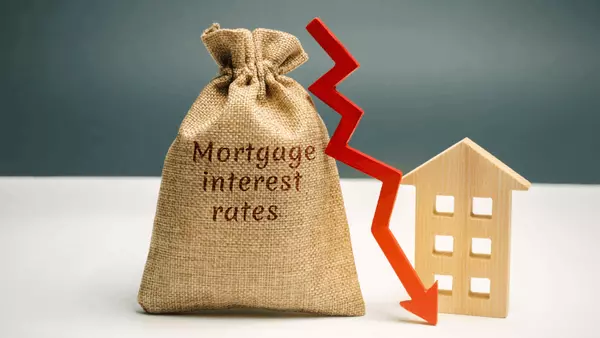Key Factors That Influence Your Home Financing

Decoding Mortgage Rates:
Securing a mortgage is a pivotal step in the journey to homeownership, and one crucial aspect to consider is the prevailing mortgage rates. These rates, influenced by a myriad of factors, play a significant role in determining the cost of borrowing for prospective homebuyers. In this blog, we'll delve into the key factors that impact mortgage rates, shedding light on the complexities that shape the real estate financing landscape.
-
Economic Indicators:
- Interest Rates and Inflation: Mortgage rates are closely tied to broader economic indicators. Central among these is the general level of interest rates and inflation. When inflation is on the rise, central banks may implement policies to increase interest rates, affecting mortgage rates in turn.
- Interest Rates and Inflation: Mortgage rates are closely tied to broader economic indicators. Central among these is the general level of interest rates and inflation. When inflation is on the rise, central banks may implement policies to increase interest rates, affecting mortgage rates in turn.
-
Credit Score and Financial Health:
- Creditworthiness: Lenders assess the creditworthiness of borrowers based on their credit scores. A higher credit score often translates to lower mortgage rates, as it signifies a lower risk for lenders.
- Creditworthiness: Lenders assess the creditworthiness of borrowers based on their credit scores. A higher credit score often translates to lower mortgage rates, as it signifies a lower risk for lenders.
-
Loan-to-Value Ratio (LTV):
- Down Payment Percentage: The loan-to-value ratio, which compares the loan amount to the home's appraised value, influences mortgage rates. A higher down payment percentage can result in more favorable rates.
- Down Payment Percentage: The loan-to-value ratio, which compares the loan amount to the home's appraised value, influences mortgage rates. A higher down payment percentage can result in more favorable rates.
-
Market Conditions:
- Supply and Demand: Mortgage rates are influenced by the basic principles of supply and demand. When there's a high demand for mortgages, rates may rise. Conversely, if the demand decreases, rates may fall.
- Supply and Demand: Mortgage rates are influenced by the basic principles of supply and demand. When there's a high demand for mortgages, rates may rise. Conversely, if the demand decreases, rates may fall.
-
Global Economic Factors:
- Global Economic Climate: Global economic events and conditions, such as geopolitical tensions, international trade dynamics, and global economic downturns, can have a ripple effect on interest rates.
- Global Economic Climate: Global economic events and conditions, such as geopolitical tensions, international trade dynamics, and global economic downturns, can have a ripple effect on interest rates.
-
Housing Market Trends:
- Home Prices and Inventory: The state of the housing market itself plays a role. High demand and low inventory can contribute to higher mortgage rates, as lenders adjust to market conditions.
- Home Prices and Inventory: The state of the housing market itself plays a role. High demand and low inventory can contribute to higher mortgage rates, as lenders adjust to market conditions.
-
Government Policies:
- Central Bank Policies: Actions taken by central banks, such as the Federal Reserve in the United States, to regulate the money supply and interest rates can have a direct impact on mortgage rates.
- Central Bank Policies: Actions taken by central banks, such as the Federal Reserve in the United States, to regulate the money supply and interest rates can have a direct impact on mortgage rates.
-
Loan Type and Terms:
- Type of Mortgage: The type of mortgage chosen (e.g., fixed-rate or adjustable-rate) and its terms (e.g., 15-year or 30-year) influence the interest rate. Fixed-rate mortgages offer stability, while adjustable-rate mortgages may fluctuate based on market conditions.
- Type of Mortgage: The type of mortgage chosen (e.g., fixed-rate or adjustable-rate) and its terms (e.g., 15-year or 30-year) influence the interest rate. Fixed-rate mortgages offer stability, while adjustable-rate mortgages may fluctuate based on market conditions.
-
Borrower's Employment and Income:
- Stability of Income: Lenders assess the stability of a borrower's income and employment history. A steady income and employment record can positively impact the offered mortgage rates.
- Stability of Income: Lenders assess the stability of a borrower's income and employment history. A steady income and employment record can positively impact the offered mortgage rates.
-
Inflation Expectations:
- Future Economic Outlook: Mortgage rates are forward-looking, and lenders factor in expectations for future inflation. Economic projections and outlooks influence rate decisions.
💡 Navigating the complex landscape of mortgage rates requires a nuanced understanding of the various factors at play. Prospective homebuyers can benefit from staying informed about economic indicators, maintaining a strong credit profile, and carefully considering market conditions.
As the real estate financing landscape continues to evolve, being aware of these influencing factors empowers individuals to make informed decisions on their homeownership journey.
If you have any real estate questions or want to learn more about the home-buying process, tap this link to schedule a free 1:1 discovery call - no pressure 🤍
➡ Follow me on my IG @themelaniegundersheim for more!
Categories
- All Blogs (293)
- All about Boston (49)
- Buyer Tips (139)
- December Home Maintenance and Safety Tips (1)
- FUN Facts (10)
- Home Décor Ideas (25)
- Home Improvements (1)
- Home Maintenance and Safety Tips (14)
- Infographics (10)
- Investing (82)
- Monday Motivation (6)
- Real Estate (87)
- Seller Tips (105)
- Storage and Organization (8)
- The Open Door Podcast (2)
- The truth about Real Estate (135)
- Tips (83)
Recent Posts











"My job is to find and attract mastery-based agents to the office, protect the culture, and make sure everyone is happy! "
